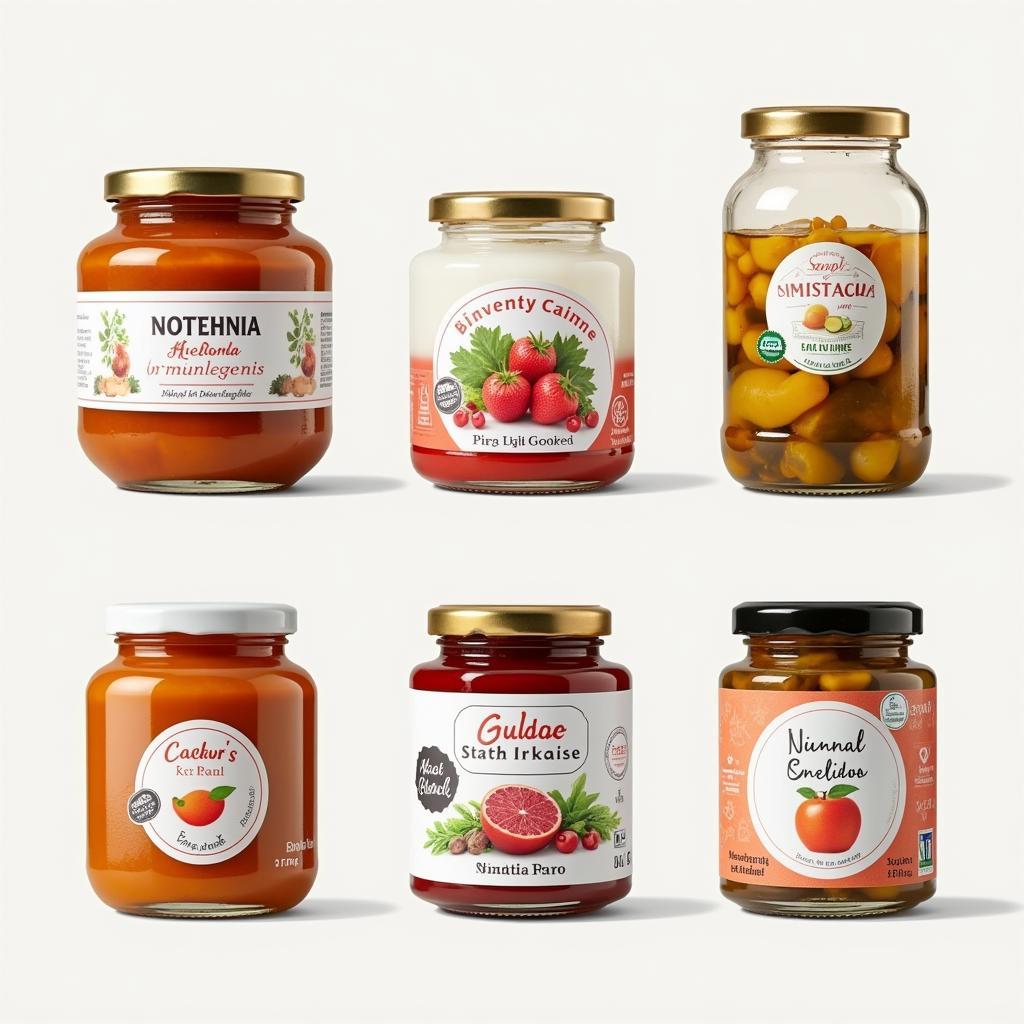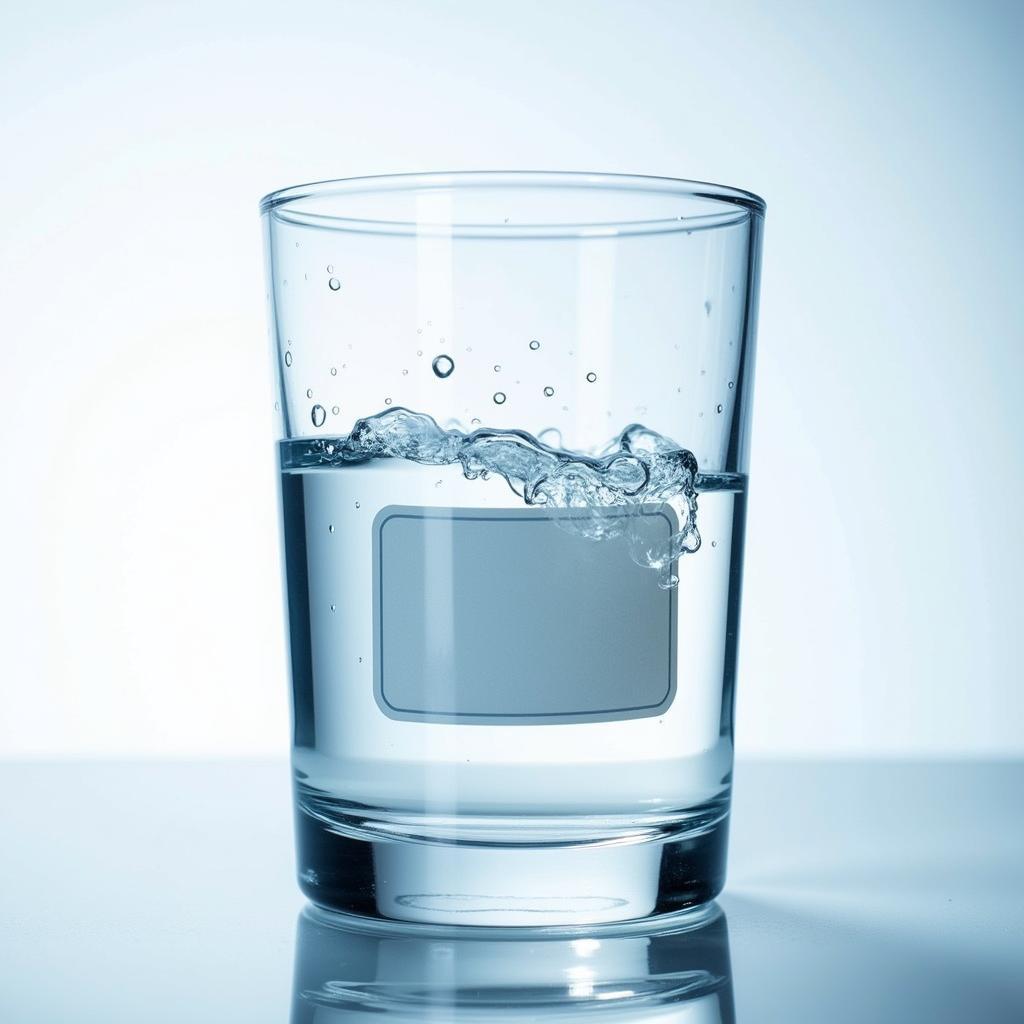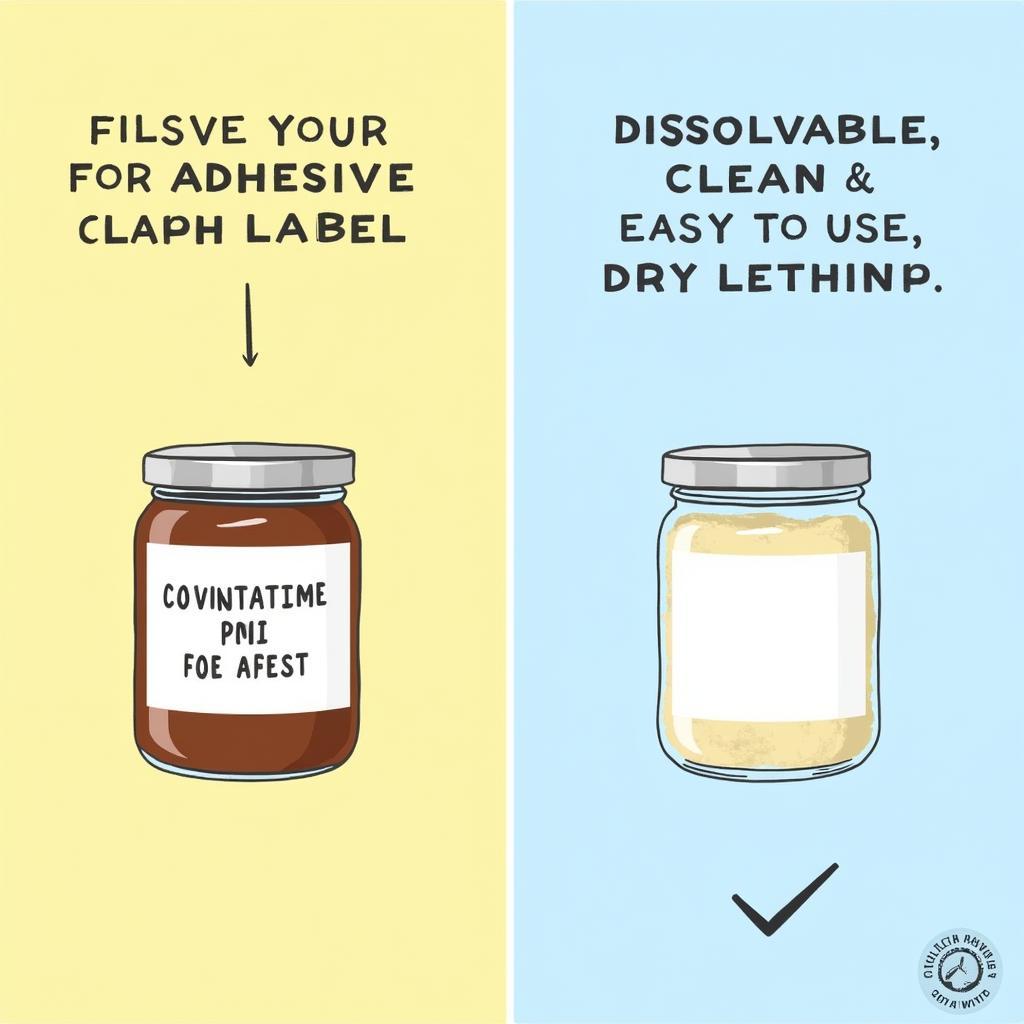Dissolvable Food Labels are revolutionizing the food packaging industry. They offer a sustainable solution to traditional adhesive labels, eliminating the frustrating task of peeling sticky labels and contributing to a greener future. This innovative technology is transforming how we interact with food packaging, making it easier, cleaner, and more environmentally friendly.
What are Dissolvable Food Labels?
Dissolvable food labels, also known as wash-off labels, are designed to completely dissolve in water, leaving no residue behind. They’re made from special materials that break down rapidly when exposed to moisture. This unique feature eliminates the need for consumers to peel off labels, saving time and reducing the risk of damaging the product. Imagine no more struggling with stubborn stickers on your jars or sticky residue on your reusable containers!
 Dissolvable Labels on Jars
Dissolvable Labels on Jars
This technology isn’t just beneficial for consumers; it’s also a game-changer for businesses. Dissolvable labels streamline the recycling process, as there’s no need to separate labels from packaging. This reduces waste and improves recycling efficiency, aligning with the growing demand for eco-conscious practices.
The Benefits of Dissolvable Food Labels
Dissolvable food labels offer a plethora of advantages over traditional labels, contributing to a more sustainable and user-friendly experience:
- Improved Recycling: Eliminates the need for label separation, enhancing recycling efficiency.
- Reduced Waste: Minimizes label waste and its impact on landfills.
- Enhanced User Experience: Eliminates the hassle of peeling sticky labels.
- Preserves Product Integrity: Reduces the risk of damaging products during label removal.
- Increased Sustainability: Offers an eco-friendly alternative to traditional labels.
- Improved Aesthetics: Provides a cleaner and more appealing look to packaging.
 Dissolvable Label Dissolving in Water
Dissolvable Label Dissolving in Water
How Do Dissolvable Food Labels Work?
The magic behind dissolvable food labels lies in their specialized composition. They are typically made from materials like cellulose or other water-soluble polymers. These materials are designed to break down rapidly upon contact with water, dissolving into harmless byproducts. This process is quick and efficient, leaving no sticky residue or traces of the label.
Are Dissolvable Food Labels Safe?
Yes, dissolvable food labels are generally safe for use on food packaging. They are made from FDA-approved materials that are non-toxic and biodegradable. They pose no threat to food safety and are designed to disintegrate completely in water, leaving no harmful residue.
“Dissolvable labels represent a significant step towards truly sustainable packaging,” says Dr. Emily Carter, a leading expert in sustainable packaging solutions. “They address both consumer convenience and environmental responsibility, creating a win-win situation for everyone.”
 Traditional vs. Dissolvable Labels
Traditional vs. Dissolvable Labels
Dissolvable Food Labels: A Sustainable Choice for a Better Future
Dissolvable food labels are more than just a convenient packaging solution; they’re a commitment to a more sustainable future. By choosing products with dissolvable labels, you are contributing to a reduction in waste, improved recycling practices, and a healthier planet. Embrace this innovative technology and join the movement towards a greener tomorrow.
FAQ
- What are dissolvable food labels made of? They’re typically made from cellulose or other water-soluble polymers.
- Are they safe for food contact? Yes, they are made from FDA-approved, non-toxic materials.
- Do they leave any residue? No, they dissolve completely in water, leaving no residue.
- Are they more expensive than traditional labels? While the initial cost might be slightly higher, the long-term benefits often outweigh the difference.
- Where can I find products with dissolvable labels? An increasing number of brands are adopting this technology, so look for them in your local supermarket.
- How long does it take for a dissolvable label to dissolve? They typically dissolve within seconds of contact with water.
- Can I use them on home-canned goods? While possible, it’s best to check the manufacturer’s recommendations for specific applications.
Related Articles
- Sustainable Packaging Solutions
- The Future of Food Packaging
- Eco-Friendly Food Choices
When you need assistance, please contact us: Phone Number: 02437655121, Email: minacones@gmail.com Or visit us at: 3PGH+8R9, ĐT70A, thôn Trung, Bắc Từ Liêm, Hà Nội, Việt Nam. We have a 24/7 customer service team.